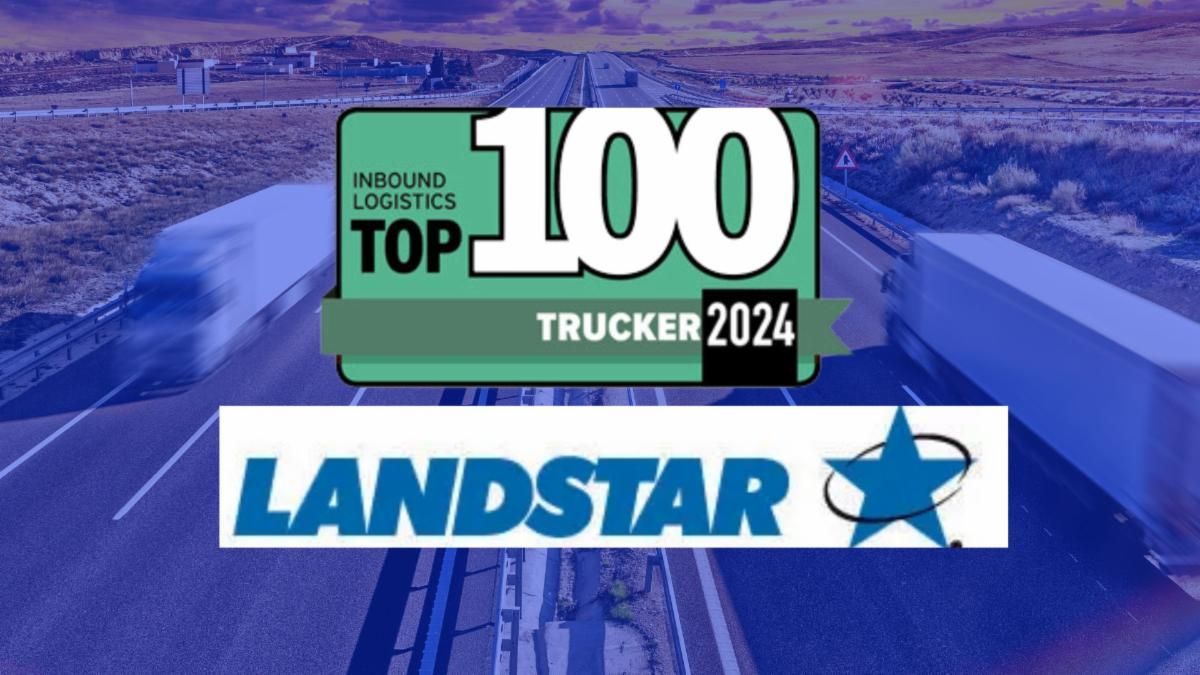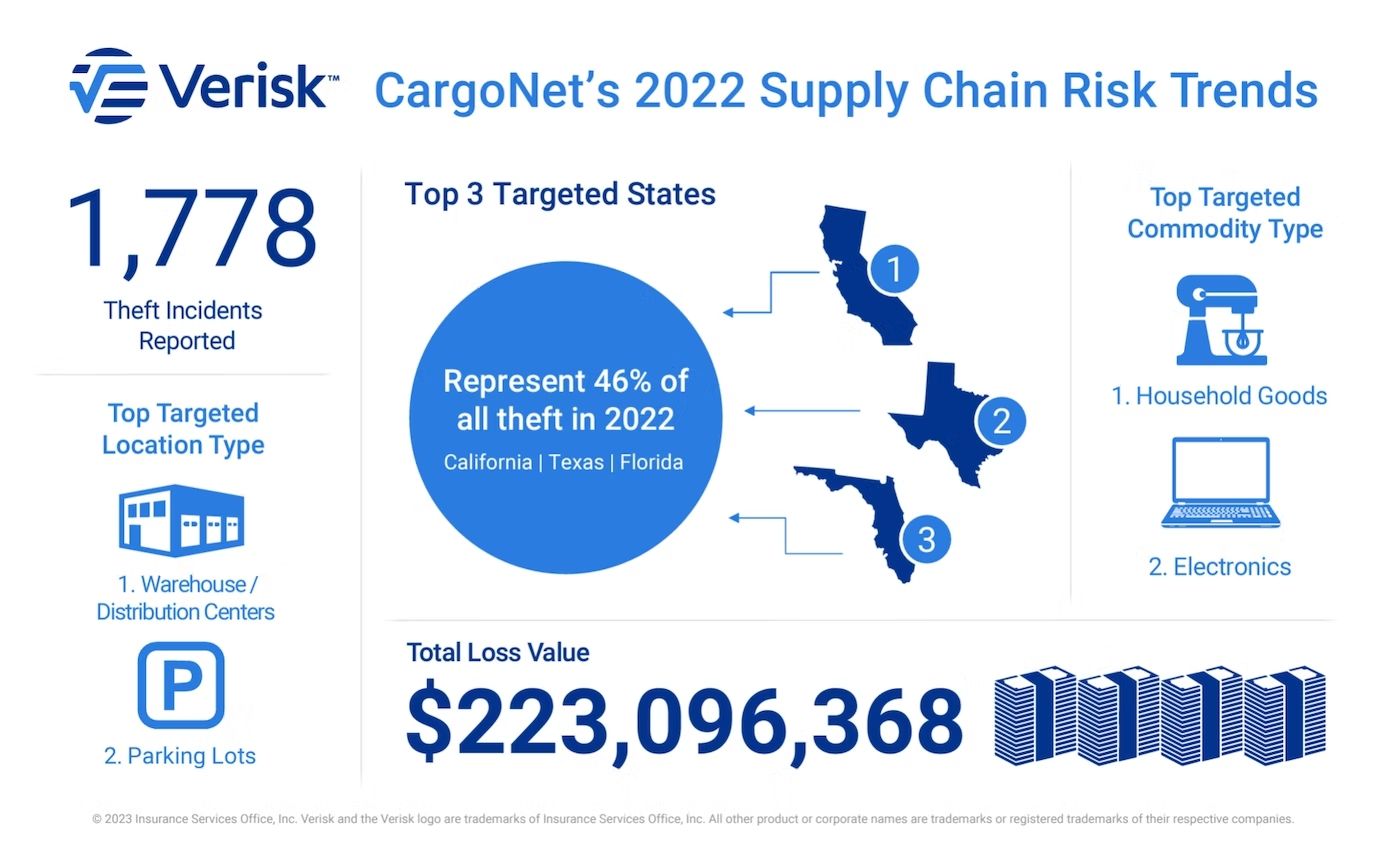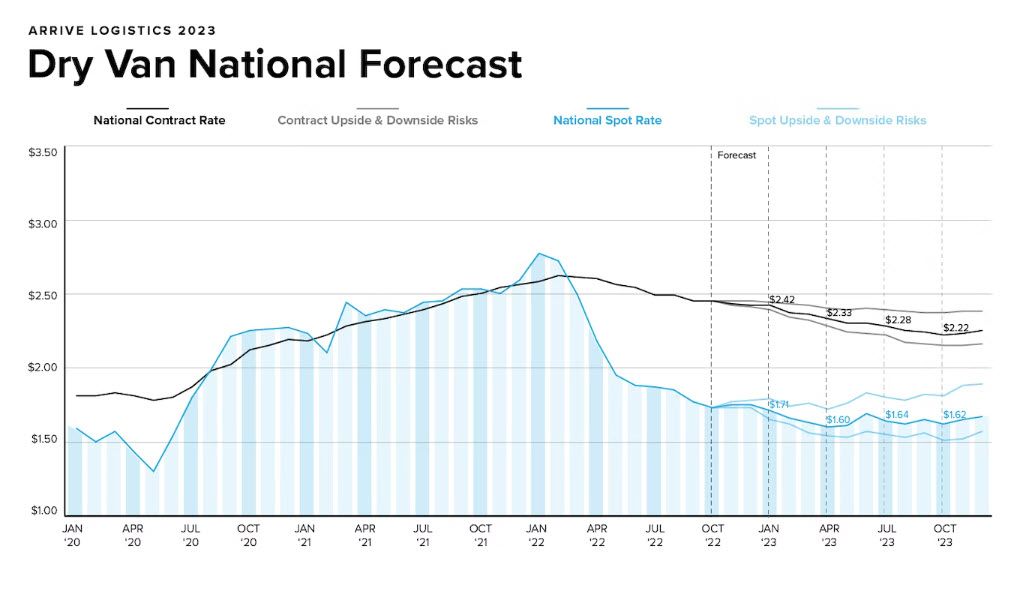FMCSA application reignites hair-testing debate

Trucking Alliance-led group of large freight haulers applies to make hair testing a method accepted by the federal Drug & Alcohol Clearinghouse for screening truck drivers. But some of the usual opponents already have emerged.
Since even before the U.S. government rolled out the Drug & Alcohol Clearinghouse for truck drivers more than two years ago, certain freight-hauling stakeholders have pushed forcefully for something that is absent to this day: hair-follicle testing as a sanctioned method of screening truckers, even though countless carriers have utilized it for years to pre-screen their own driver applicants.
These stakeholders and many others argue that hair testing is more accurate and can detect a longer-term history of drug use than urinalysis, which is more capable of detecting drug use within a few days’ time. Controversially at times, the federal clearinghouse only officially accepts results collected through the testing of urine—and this year, the U.S. Department of Transportation approved the addition of oral fluid testing to the clearinghouse-sanctioned testing methods, though this is still under review. Hair testing, however, has remained on the outside looking in.
A group of mostly large trucking companies, led by their advocate, The Trucking Alliance, has opened the issue to more debate by asking the Federal Motor Carrier Safety Administration, the U.S. agency that regulates trucking, to sanction hair testing as a method accepted by the clearinghouse for determining whether truckers have used illegal substances and should not be cleared to drive.
FMCSA is seeking comments from industry stakeholders until Sept. 23 on the proposal, which was put forward by the Alliance and its motor carriers, including some FleetOwner 500 Top For-Hire Fleets of 2022. Cargo Transporters (No. 192 on the for-hire list), Dupré Logistics (No. 140), Frozen Food Express, J.B. Hunt (No. 5), KLLM Transport Services (No. 53), Knight Transportation (No. 4), Maverick Transportation (No. 75), May Trucking (No. 101), Schneider (No. 11), Swift Transportation (No. 4), and U.S. Xpress (No. 18) are listed on the Federal Register as co-applicants for the FMCSA exception.
Carrier comments on driver hair testing
Their proposal, FMCSA Docket No. 2022-0127, seeks to change Federal Motor Carrier Safety Regulations (FMCSRs) “to amend the definition of actual knowledge to include the employer’s knowledge of a driver’s positive hair test, which would require such results be reported” to the Drug & Alcohol Clearinghouse and to carriers inquiring as part of the driver-application process.
FMCSA doesn’t have the authority to grant the Trucking Alliance's request until the U.S. Department of Health and Human Services weighs in, but FMCSA can and is seeking public comment on the Alliance's proposal.
And since the FMCSA notice of the Alliance application was published on Aug. 24 in the Federal Register, 50-plus public comments have been received—and they reflect the lingering divide on the issue of hair testing and allowing it as a method sanctioned for the federal clearinghouse.
“We fully support the efforts of the Trucking Alliance,” a representative of Midwest Dairy Transport posted on the comment board. “I work in safety for a carrier with more than 150 units. We have been hair testing for six years now. For every positive urine test, there are eight or more positive hair tests. One individual applied to work here, was urine tested four times over the course of a year, passed all four urine [tests] but failed the hair tests. He was not hired. We have an obligation to use the most effective test methods to get to the truth of whether … someone has a substance issue. Even though hair testing costs $13.50 more than a urine test, we will continue to use it because it works.”
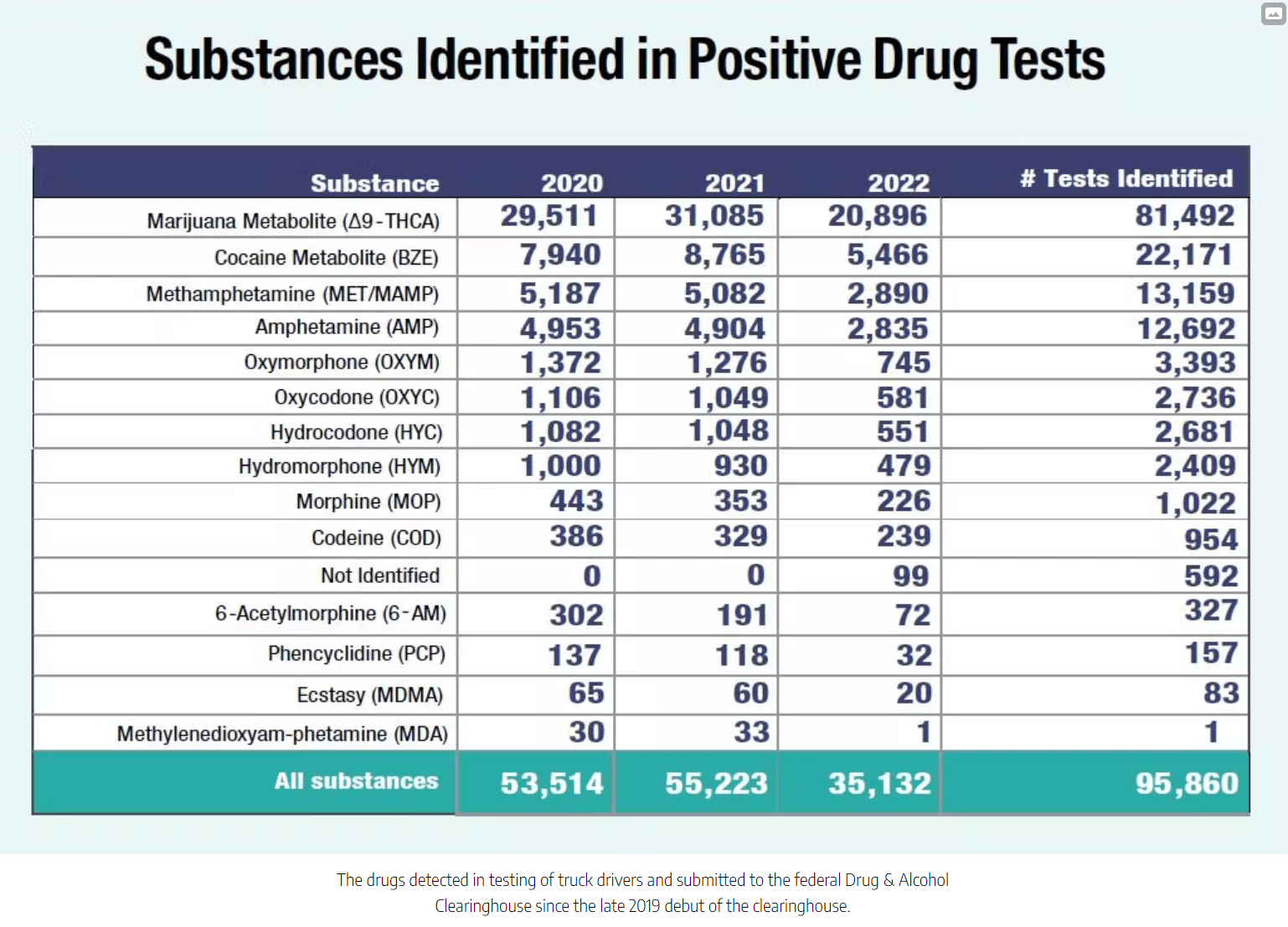
“As a truck operator of 110 trucks, I fully support hair-follicle testing,” another Federal Register poster from Service Transportation Inc. wrote. “I do this knowing that the struggle to hire and retain drivers will only get more difficult. That said, the industry is in a mess in many ways. Clean drivers should be safer drivers. And with more clean drivers on the road, the image of trucking will improve, hopefully to the point that drivers are seen and treated as skilled labor and the full benefits and respect that come with that.”
Yet another posting from Paschall Truck Lines stated: “I support 100% that positive hair-follicle [tests] should be reported to the clearinghouse. As a fleet that has been doing hair tests in addition to [requiring] urine tests for three years now, we continue to see a good percentage of driver applicants fail the hair test, and we are thankful every day that we screen out these applicants who have used illegal and, in many cases, hard drugs, who would have otherwise presented a significant risk to the motoring public.
One poster, who identified himself as Uncle Fungus, countered by asking: “Please explain to me how knowing one’s past indiscretions will make trucking safer.”
This poster continued: “There are too many variables to consider when looking at the timeline of a hair follicle. Drug testing should be all about ... that person using drugs while operating a commercial vehicle. Or in the case of pre-employment, used drugs prior to being hired as a commercial driver.
“If Billy Jack was deep in the woods on a camping trip, and he partook of a joint while on vacation, that timeline was created in his hair follicle. By the time Billy Jack returned to his duties as a commercial driver, he was clean and sober. If he was tested using the hair follicle and determined to be unfit for driving, you will be taking out of the driving population a seasoned driver [who] had no detectable drugs in his system. Hair-follicle testing is a fishing trip that serves no real purpose and, in the end, could severely cripple the trucking industry.”
How the Drug & Alcohol Clearinghouse works
The Drug & Alcohol Clearinghouse is a secure online database that gives employers, FMCSA, state licensing agencies, and state law enforcement personnel real-time information about a CDL/CLP holder’s drug-and-alcohol test status. All CDL holders, their employers, and service agents have to register with the clearinghouse. If you drive for a fleet, that fleet must register you with the clearinghouse. If you’re an independent owner-operator, you navigate the process yourself.
Regardless of the testing method, a positive result can have serious—and perhaps career-ending—consequences for a truck driver.
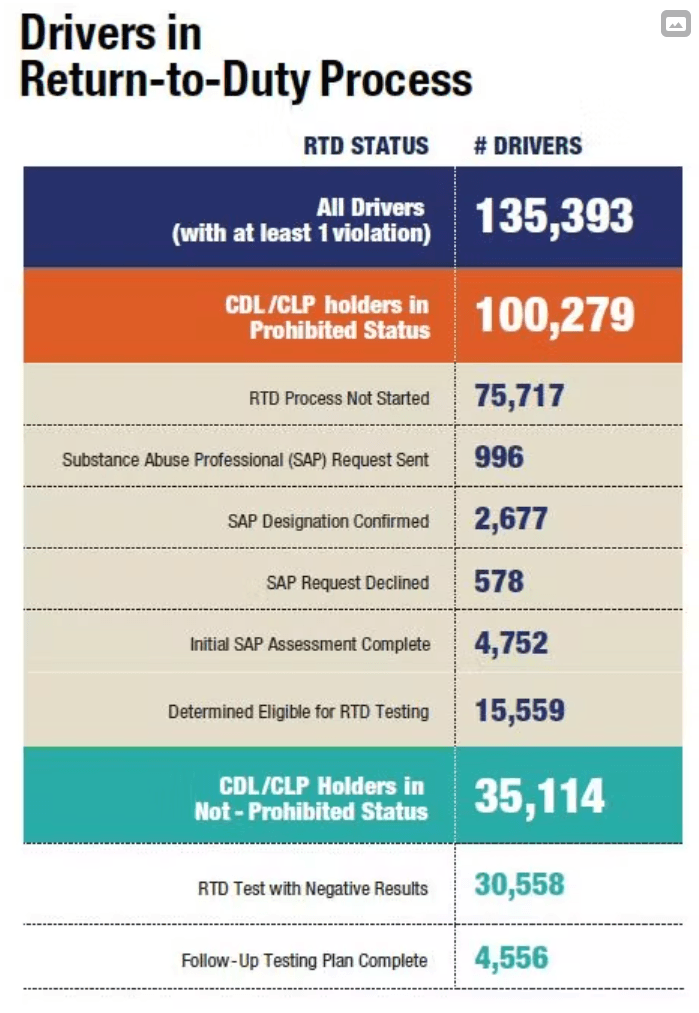
Once a trucker has a positive result recorded with the clearinghouse, he or she must stop driving and go into a "return-to-duty" process (RTD), which can last at least several months. They also must enlist help from a substance abuse professional (SAP), who has access to the clearinghouse and reports on whether the driver is following counseling requirements and a testing schedule. This SAP decides how long a driver must be tested, which can go on for up to five years, and can decide how often a driver is tested (at least six times in the year after the violation and for which substances). If a SAP finds a driver has satisfactorily completed the RTD process, the driver can get back behind the wheel. But many drivers enter the RTD process, never exit, and move on to other livelihoods.
The Owner-Operator Independent Drivers Association (OOIDA) and its independent-operator members have been adversaries of the Trucking Alliance on several occasions—perhaps most forcefully over hair testing. Through a FleetOwner request to OOIDA spokesperson Norita Taylor, the group put out a blistering statement in opposition to the Alliance's application to FMCSA.
The OOIDA statement reads: “The Alliance’s exemption request is another misguided attempt to mandate hair testing for the nation’s commercial motor vehicle drivers that will not reverse the trend of rising crashes and fatalities involving heavy trucks. Given the many uncertainties and lack of safety improvements from hair testing, there is no sound reasoning for federal agencies to adopt any sort of hair-testing mandate for drivers. This is in large part why FMCSA does not have the statutory authority to even grant such an exemption, as rightly mentioned in the notice.”
Lane Kidd, managing director of the Alliance, answered to FleetOwner on his group's petition before FMCSA: “When an employer is aware that a truck driver has failed a recognized drug test, FMCSA has a moral and ethical responsibility to accept that test result into the clearinghouse. Yet FMCSA is currently allowing tens of thousands of truck drivers who have failed a recognized drug test to skirt the system. We’re confident the current FMCSA leadership is going to ultimately do the right thing and grant this petition because it will be a huge step for highway safety.”
